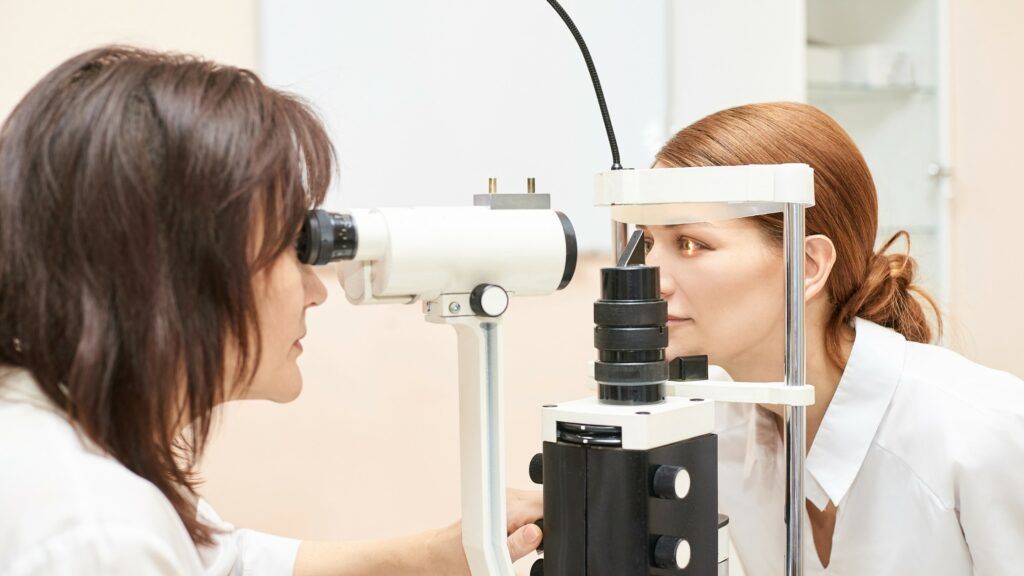In the realm of ophthalmic diagnostics, keratometers emerge as crucial instruments for measuring the curvature of the cornea, providing valuable insights into corneal astigmatism, keratoconus, and refractive surgery planning. Equipping your practice or facility with the right keratometer empowers accurate diagnoses, informed treatment decisions, and ultimately, superior patient care. This comprehensive buying guide, meticulously crafted for B2B medical device buyers across the globe, aims to illuminate the intricacies of keratometers, guiding you towards the optimal choice for your specific needs.
Essential Keratometer Features
- Measurement Modes: Opt for keratometers offering diverse measurement modes, including central corneal thickness (CCT), keratometry readings in both central and peripheral zones, and pupillary distance measurements. This facilitates comprehensive corneal assessments and surgical planning accuracy.
- Precision and Repeatability: Prioritize keratometers showcasing exceptional precision and repeatability in measurements. Look for manufacturers like Kashmir Surgical India Pvt. Ltd. and A.S.F. Universal, renowned for their commitment to high-quality optics and advanced calibration techniques.
- Ease of Use: A user-friendly interface is paramount for efficient workflow. Consider keratometers featuring intuitive controls, clear displays, and user-friendly software, like those offered by Medicare Surgicals.
- Connectivity and Data Management: Explore models offering seamless connectivity features like USB ports or wireless data transfer for convenient integration with electronic medical records (EMRs) and efficient data management.
- Portability and Durability: For versatility and space optimization, consider portable keratometers. However, ensure they uphold the same level of accuracy and durability as stationary models.
Understanding Key Technologies
- Placido Disk Keratometers: The traditional workhorses, these employ a series of concentric rings (Placido rings) reflected onto the cornea, enabling manual keratometry readings. Affordable and reliable, they are well-suited for basic evaluations.
- Automatic Keratometers: Featuring automated measurement procedures, these offer enhanced speed, reduced operator dependence, and potentially higher accuracy. Look for models with advanced features like automatic tear film compensation and keratometry maps for detailed corneal analysis.
- Scheimpflug Imaging Keratometers: Offering comprehensive corneal topography mapping, these advanced models provide invaluable insights into corneal shape, thickness variations, and early detection of keratoconus. Consider them for specialized practices or refractive surgery centers.
Leading Keratometer Manufacturers
Kashmir Surgical India Pvt. Ltd.
Presenting the DP-5183 Keratometer B & L Type by Kashmir Surgical India Pvt. Ltd., a global leader in ophthalmic instruments. This cutting-edge device, meeting ISO 9001:2000 standards, sets the benchmark for manual corneal curvature measurement. Designed for optometrists and ophthalmologists, it excels in assessing concave surfaces for precise contact lens fitting. With features like swift elevation, engraved focusing scale, and a coincidence focusing system, the keratometer ensures efficient examinations with accurate and reliable measurements. Its user-friendly interface and single-position measurements in both meridians make it a time-saving choice for clinics. Trust the DP-5183 for unparalleled precision, reflecting Kashmir Surgical’s unwavering commitment to quality in ophthalmic instruments.
A.S.F. Universal
A.S.F. Universal, an esteemed Indian medical equipment manufacturer, introduces the KM-4 Keratometer. Part of their extensive ophthalmic equipment line, the Sutcliff type KM-4 stands out for its ability to conveniently measure the radius of curvature, astigmatic axis, and other crucial eye parameters. The double external reading feature allows simultaneous measurement of the radius of curvature and refractive power, providing comprehensive insights. This versatile keratometer facilitates the assessment of corneal curvature, refractive power, and corneal astigmatism, ensuring a thorough diagnostic process. With easy setup on any instrument table due to its incorporated base, the KM-4 exemplifies A.S.F. Universal’s commitment to precision and adaptability in ophthalmic instruments.
Medicare Surgicals
Introducing the 10503 Keratometer by Medicare Surgicals, a top-tier ophthalmic diagnostic tool meticulously crafted in India. This advanced device accurately measures the anterior corneal surface curvature, serving as a crucial asset for ophthalmologists and optometrists in astigmatism assessment and determining corneal curvature parameters. Offering reliability and precision, the 10503 Keratometer is essential for diagnosing and monitoring various eye conditions in clinics, hospitals, and optical centers. With a user-friendly interface, high-resolution display, and compact, portable design, this instrument ensures convenient operation without compromising on accuracy. Trust Medicare Surgicals for excellence in ophthalmic instruments with the 10503 Keratometer.
Additional Considerations:
- Budget: Define your budget range upfront to narrow down your choices. Remember, cost shouldn’t solely dictate your decision; prioritize quality, features, and long-term value.
- Warranty and Service: Opt for manufacturers offering comprehensive warranties and readily available service support to ensure peace of mind and minimize downtime.
- Regulatory Compliance: Verify that the keratometer meets relevant international regulatory standards for medical devices.
Training and Support: Inquire about available training programs and ongoing support options to ensure your staff operates the keratometer effectively.
Disclaimer: This buying guide provides general information and should not replace professional advice and guidance
